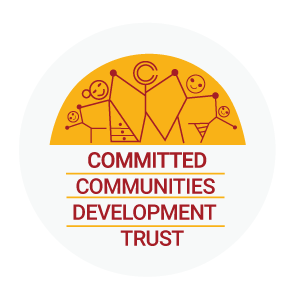Why Partner with CCDT?
1. Rich experience of managing communicable diseases on ground
Being a pioneer is never easy. However, looking at the history of CCDT’s programs, one would be forced to acknowledge that they make pioneering work seem very easy to achieve. Starting from pioneering care and support for leprosy colony, when no one wanted to take it up, to addressing stigma and discrimination associated with managing day care centres for children of women living with HIV/AIDS, in the heart of Kamathipura, a project of BMC, again a challenge no other organisation was willing to take – they have done it all.
It is important to note that all of CCDT’s pioneering efforts have been in the arena of communicable disease prevention, resulting in achievements that are well recognised by government agencies, from BMC to MSACS, who have, themselves, been combating these diseases for many years.
2. Community mobilisation and empowerment – an effective strategy for sustainable change
CCDT focuses on building the capacity of community members to demand public health services, increase their uptake of these services, as well as monitor service delivery and advocate for Government accountability. Aimed at pregnant women, lactating mothers, adolescents and communities, to improve their health, nutrition and overall development need, the Sahyog team works towards the formation and strengthening of Mata Samitis.
Mata Samitis are formed under Sahyog project as per Anganwadi centre, there being 10 Anganwadi centres, servicing 22 hamlets of the community. There are currently 90 members covering all the groups and all of them have been equipped with knowledge of ICDS services and their role in monitoring the activities. The Mata Samiti members monitor regular disbursement of take home rations, hold monthly meetings, conduct nutrition demonstration and generally support the Anganwadi worker in executing her duties optimally.
3. Centre of excellence- Residential Care Program for children in crisis
The Residential Care Program of CCDT, An NGO in Bandra initiated in the year 2000, is today one of the most well-known centres among all residential care units operated by Non-Governmental Organisations. Recognised by the CWC as the best in Maharashtra, the residential centres of CCDT set standards that others find hard to follow. The residential centres ensure an environment which is free from stigma and discrimination for the children, making each one of them feel special, whether it is through their customised diet or through the personal attention to their medical needs. The residential centres are a beacon of hope for the children from distressed circumstances.
4. Recognised as an organization for community programs on maternal & child health and nutrition
Through its Urban Nutrition Initiative (UNI), Tata Trust had entered into a unique public-private partnership with Committed Communities Development Trust (CCDT) along with Rajmata Jijau Mother and Child Health and Nutrition Mission (RJMCHNM), to improve maternal & child health and nutrition in Maharashtra. The program was based on the premise of ‘optimal results with minimum resources’ and over the last three years, had reached 32,258 children in the age group of 0-2 years, 12,383 pregnant women and 12,338 lactating mothers. The program has strengthened 846 Anganwadi centres across Maharashtra and trained 1,145 Anganwadi workers. Simultaneously, it had worked to build the community’s demand for ICDS by enhancing community awareness of services offered through ICDS, as well as creating Mothers’ groups to monitor the quality of services delivered thereby ensuring the accountability of service providers.
5. Experience in handling adolescent and youth empowerment issues
Peer-to-peer learning is one of the most effective ways of creating awareness as well as motivating adolescents to make informed decisions. The program has been continuously engaging with adolescents between 10-18 years on various health and WaSH components. There are 15 groups of adolescents across 22 hamlets with 325 members. The adolescents have been trained on using drama and street play as mediums to reach out to the community and create awareness on various issues of health and WaSH. The adolescent leaders took on the crusade to create awareness on making ‘Health for All’ a reality
The program engages and empowers community members and enhances their participation and proactive roles in addressing issues of maternal and child health and nutrition within the community, thus building strong community owned programs that are sustainable. 125 child or adolescent leaders have been identified and trained as sustainable peer leaders in the community. The intensively trained committee members and strong adolescent peer educators are now leading the process of sustainable social change in their communities
Give in Kind
You can also donate in kind. We have a daily bulletin put up at the Ashray Center, Bandra – with our daily requirements such as groceries, medicines, stationery, seasonal items like raincoats, consumables etc. You can directly contact our centre in Bandra, Ashray to give in kind. Phone: +91 8291875741 | +91 22 26458473. Or leave your contact details and we will be happy to reach out to you.

CCDT is proud to be India’s Best Place To Work 2023, which is recognised by Great Place To Work (India)
